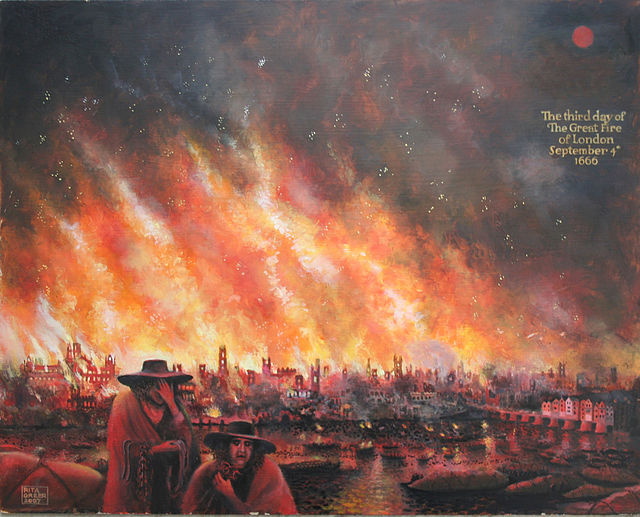This is from the blog Daily Meditation:
Psalm 57:11: Be exalted, O God, above the heavens! Let your glory be over all the earth!
The psalmist is expressing desire for God to show forth himself on the earth, asking that his glory will be above all the earth, that his name be exalted. When Jesus taught on prayer he said that we should pray to our heavenly father: let your will be done on earth as it is in heaven (Matthew 6:10). We are to seek that the will of God to be exalted on the earth.
With Adam and Eve in their sin (Genesis 3), there was the throwing down of the will of God, the will of God was jettisoned, trampled upon, disregarded. The will of God was rejected. But in Christ we are to actively in the place of prayer seek that the will of God be done. Through that we are removing ourselves from the rebellion of the first Adam.
When God said that they should not eat the fruit of the free of the knowledge of good and evil, they were convinced by the devil that God was exaggerating, that the tree only had good and not evil, he sold them a half truth, and caused them to eat the poison of disobedience to God. Now all that has got to change, man has to be called back to loving God, which Jesus defined as obedience. Jesus told the disciples if you love me, you will obey my commandment (John 14:15-23). That will lead to God being exalted in our lives.
Paul wrote that at the name of Jesus everyone knee must bow and every tongue confess that Jesus Christ is Lord (Philippians 2:5-11). The name is exalted and everything else would have to bow to it. The destiny of the earth is in the direction of being covered by the glory of God and man was to be the medium for this. But man allowed himself to be distracted into selfishness, and was disqualified from being conduits of the glory of God. Selfishness is the alternate motivation to the love of God, and when it comes to manifesting the glory of God, motivation is everything.
When the psalmist said: “be exalted oh Lord”, what he wants is for God to “come out,” for him to be manifestly exalted, show himself for who he really is, for public knowledge, to leave no shadow of doubt about who he is. Otherwise the fools will continue to say that there is no God (Psalm 14:1). But God is exalted above the earth, there will be no gainsaying.
There was no hiding place in the land of Egypt when the God was ready to deliver his people by his mighty outstretched arms (Deuteronomy 26:8). Though Pharaoh was headstrong, he was no match for God when He is ready to show his supremacy. In judgement, Egypt was forced to its knees, when God was ready to set his people free, manifesting his glory as the earth had never seen.
The magnificence of God was shown in Egypt so much that the children of Israel became an object of fear (Psalm 105:26-45, Exodus 15:14-16, 23:27-28). He became the exalted in their lives, his manifest presence in the pillar of cloud by day and fire by night, was upon the assembly of the people all the time. He covered them with his protection and grace.
Jesus’ life was about God’s glory. He did not seek his own glory or try to make a name for himself; rather God rewarded him with a name greater than any other name, when he laid down his life. Jesus said that he who seeks to protect his life will lose it. As he laid down his life at God’s request, he was reward with a higher life, resurrected life.
Paul said that it is required in stewards that they are found faithful. And Jesus was faithful to God. He was all for God’s glory. He said to God: I have glorified you on the earth. He said that he had to go about his father’s business; he has to go about doing the will of his father (Luke 2:49).
To God is all the glory in all things because we are nothing more than earthen (earthly) treasures with heavenly treasure in us (2Corinthians 4:7).
God’s glory should be uppermost in our mind and not just our own desire and will. We should be ready to do is bidding; seek to magnify his name. Paul told Timothy: preach the word, in season and out of season, whether it is convenient or not, do the work of an evangelist (2Timothy 4:1-8). He wants him to seek the eternal reward that will come when Jesus will appear and reward the faithful with eternal portions.
Since we walk with a God we do not see, and so walk with him by faith, we have to serve him also by faith, seeking for the reward beyond the veil of time, the realm of what is seen. The writer of the book of Hebrews says: wherefore we are receiving a kingdom which cannot be moved, let us have grace, whereby we may serve God acceptably with reverence and godly fear (Hebrews 12:28).
There is a kingdom that we are working towards on this earth (and working for the king); there is a glory that we must manifest, a fire we must set, a task we must fulfil, and we need to lay aside every sin and the fear, the weight that easily besets us to be able to do that (Hebrews 12:1-2). There is a race set before you, a mandate of heaven you must fulfil. As bearers of the glory of God, our service becomes an outlet of his glory. Wherever we sit, there should have a deposit of the glory of God there, whoever we touch should experience God’s glory.
Miracles happen when cloth items were taken from the body of Paul; devils were cast out, and the sick were healed (Acts 19:11-12). The shadow of Peter healed the sick that were lined up on the street (Acts 5:15-16).
The manifestation of the sons of God which Paul talked about is all about unleashing the glory of God like never before on the earth through God’s vessels (Romans 8:18-21), who are dead to themselves by alive to God, dead to human acclaim but fully given to God, having no eye for human gain but eyes set on God. They will lead many from hell to heaven with the banner of the grace and power of God. They will not be afraid or back down, they will not be shaken, and they know that there is a kingdom that cannot be shaken.







